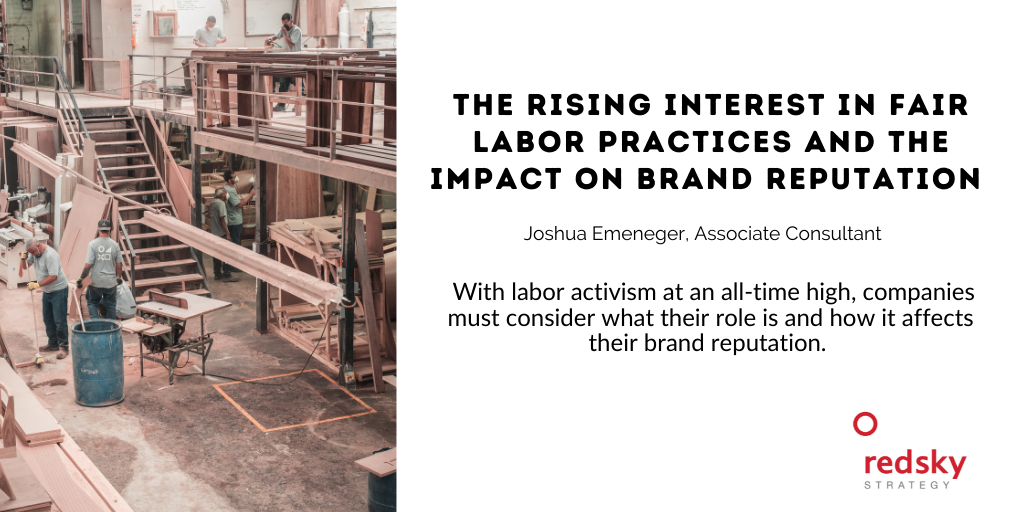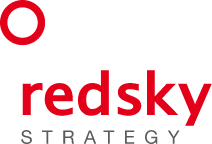News
The Rising Interest in Fair Labor Practices and the Impact on Brand Reputation

The labor movement and fair labor practices are gaining steam among both workers and consumers, creating both risks and opportunities for brands.
Union density has been declining for over 40 years, with American membership dropping from 20.1% to 10.3% between 1983 and 2019, and leading to subsequent declines in workers’ rights and safety conditions. This has created an upsurge in labor activity (i.e., strikes,) despite the continually thinning union membership.
At the same time, COVID-19 created an environment where “essential workers” were celebrated for working during the pandemic without receiving any material benefits. It fueled the latest uptick in union support as a wide range of worker grievances were uncovered, from demanding schedules, to insufficient wages, and lack of personal protection equipment (PPE).
A Surge in Consumer Support for Labor Strikes
From healthcare to education to retail, strikes have stretched across nearly every industry.
Public support has accelerated and have been amplified with social media, as it vividly displays the helplessness of workers without a union. For instance, strikes at John Deere and Kelloggs brought attention to worker conditions in each companies’ plants. Workers began protesting after 80-hour weeks became the norm during the pandemic.
A consumer boycott was waged against Kellogg’s products. Intriguingly, the union or workers did not ask for the boycott. Rather, it was started by consumers who wished to show their support for their workers. In fact, many of the strikes that revolved around protesting unsafe conditions for companies such as Amazon and McDonald’s were by non-union workers.
Coffee chain giant, Starbucks, is seeing a union push at many of their stores across the country including stores in cities such as Baltimore, Seattle, Chicago, Memphis, and Cleveland. A Buffalo, NY Starbucks was the first to officially unionize after winning an NLRB election.
The company is still adamantly non-union but has had to play a tricky PR game to keep up its progressive image. A viral post circulating on social media was to order your Starbucks drink with the name “Union Strong” or similar sentiments:
And it seems Millennials and Gen-Z are leading the charge, showing higher support for unions than Gen-X or Boomers. “Millennials [those born between about 1980 and 2000] graduated high school and college in the wake of the Great Recession, and many have experienced high student debt, years of high unemployment, low wages, and expensive healthcare bills,” explained Kayla Blado, director of media relations at Economic Policy Institute. “This has driven many to support and join unions to help realize a higher standard of living.”
Consider the following:
- Research shows that 77% of adults ages 18 to 34 support labor unions
- 64% of Gen Z support strikes, compared to 47% of baby boomers
- 41% of Americans are less likely to purchase from brands that have workers on strike
- 29% of poll respondents (41% Millennials and 32% Gen Z) said they would be more likely to purchase from a company with unionized employees.
A study highlighting the effects of public relations on labor disputes found that “the threat of negative publicity can be most effective on employers who routinely tout their positive working conditions to the media and the public.”
What This Means for Brands
How companies treat their employees could play an increasing role in brand reputation, especially among younger audiences. Consumer social responsibility could take the form of boycotts and other active interventions in labor disputes. With social media, unfair labor practices could quickly become viral. Supporting workers’ needs is now important not just to maintain your workforce but also to maintain your trustworthiness as a brand.
In addition, brands can utilize support for fair labor practices to drive growth. Even if they’re not battling strikes or labor shortages themselves, demonstrating social responsibility and advocating for fair practices can help communicate a brand’s values and support for the working community.
That’s exactly what Crocs did when they gave away thousands of free pairs of their shoes to health care workers in their “Share a Pair” campaign. Since the spring of 2020, they’ve donated over 910,000 pairs of shoes to health care workers, a shining example of taking action to show support rather than simply verbalizing it. The campaign both enhanced their equity as a comfort shoe and showcased their values as a company.
The bottom line is that more and more consumers want to align themselves with brands whose values support their own, and how a company treats its own workers is an important beacon of its values. If a company or brand can’t be trusted to treat their own employees well, can they be trusted at all?
Interested in identifying how social responsibility could impact your brand? RedSky Strategy can provide a new perspective. We combine left-brain analytics with right-brain creativity for an original point of view called HumanSight, enabling you to imagine a different future and create new pathways to growth.
